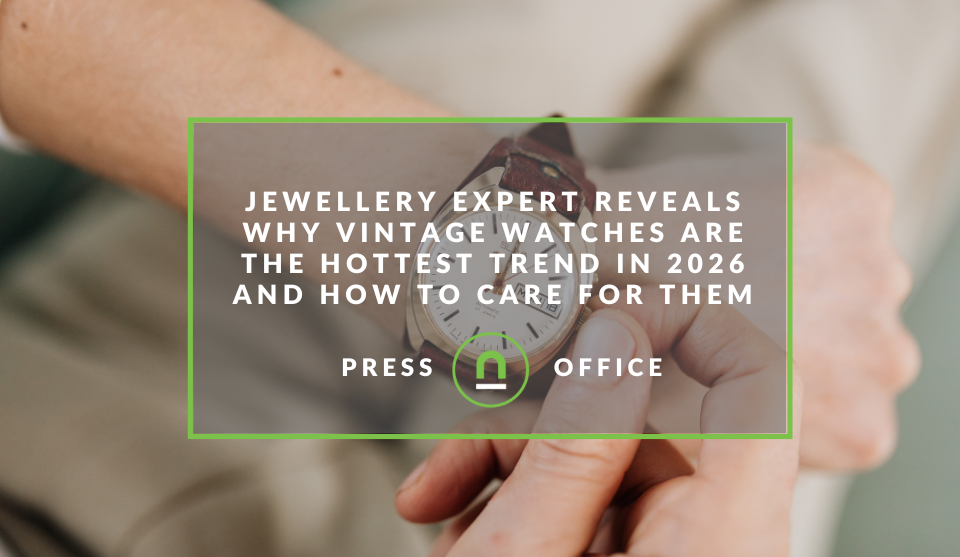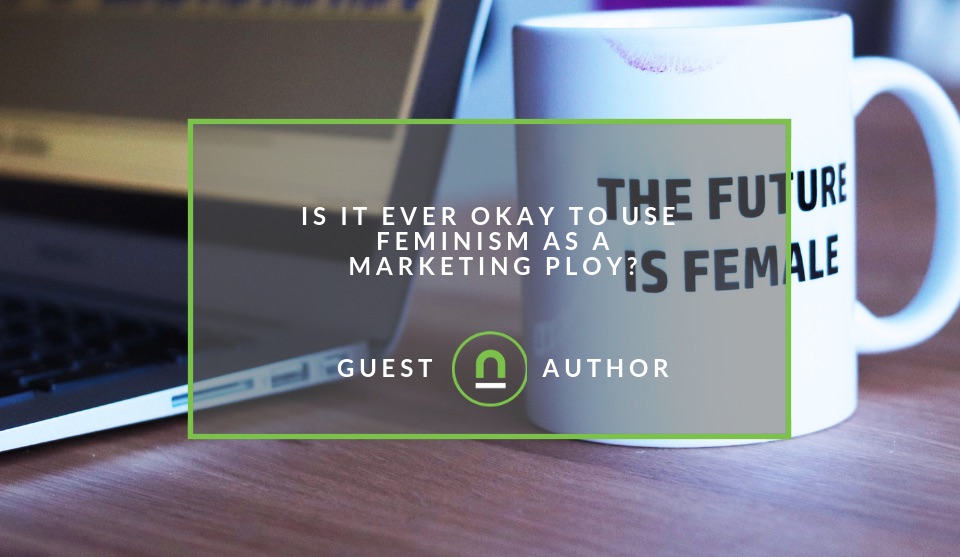Recent posts

Money Talks
XRP vs. Stablecoins: Which Is Better for Cross-Border Payments in 2026?
28 January 2026

Press Releases
Sleep Expert Cautioning Against TikTok’s ‘Mouth Taping’ Trend
28 January 2026

Press Releases
Why Vintage Watches Are the Hottest Trend in 2026
27 January 2026

Press Releases
Africaworks Accelerates The Rollout Of Real Estate Investment Platform
20 January 2026
Popular posts
Extravaganza
Trending Music Hashtags To Get Your Posts Noticed
24 August 2018
Geek Chic
How To Fix iPhone/iPad Only Charging In Certain Positions
05 July 2020
Extravaganza
Trending Wedding Hashtags To Get Your Posts Noticed
18 September 2018
Money Talks
How To Find Coupons & Vouchers Online In South Africa
28 March 2019
Is it ever okay to use Feminism as a marketing ploy?
22 August 2019 | 0 comments | Posted by Nicole Van Wyk in Industry Experts
Feminism is not a trend. It’s basically a word that describes the belief that men and women should have equal rights – a belief that has been held by many women for many, many years. The first wave of feminism is said to have started as early as the nineteenth century.
It is now 2019 and marketers around the country are having their regular round of boardroom discussions on how to implement feminism into their marketing during the month of August.
Is this necessarily a bad thing?
Marketers would agree that campaigns are best launched around special/commemorative dates that can help increase conversation, campaign reach and positive brand sentiment. Sure, this approach is not something everyone will agree with – but is it wrong?
It’s no secret that women possess the buying power in their homes. Recent stats released by Nielson revealed that 60% of women are primary purchasers in their homes, with 71% of women responsible for grocery shopping in their homes.
They’re obviously not a small segment of the consumer market. In fact, they are the primary target market for many brands. And yet, it seems, brands still struggle with targeting women effectively in their advertising.
Let's review the history
Historically, women have been the subject of some of the most condescending adverts – whether the ad targeted females or not. The increase in social media use has allowed consumers to express their dismay at offensive advertising in a way that gets the brand’s attention.
These days, if you put out an ad that is in bad taste, you’re going to hear about it. There is enough information out there for marketers to understand that women are fed up with being depicted as weak. They are also fed up with the general treatment they have to endure in society as a whole.
Of course, brands are listening (via social media listening tools) and in turn looking for opportunities to show women that they stand in solidarity with them. This is where “feminist advertising”, also known as “femvertising”, comes in.
There’s absolutely nothing wrong with using feminism in advertising. In fact, I think that all companies should – it’s important to. Positive and fair representation matters - especially for women and young girls.
Know where to draw the line
For far too long, we’ve had adverts depicting women as flat characters that enjoy being in the kitchen and girls as timid creatures only concerning themselves with dolls and make-up. It’s good to see campaigns like Always’ “Like a Girl”, Microsoft’s #MakeWhatsNext and Lego’s “What it is”.
But feminism should not be used as a marketing ploy – just for your brand to appeal to women for the sole purpose of driving sales, especially if your brand, company or organisation does not employ feminism in its core strategy. Faux feminist advertising isn’t hard to see right through – think KPMG’s hypocritical “Glass Ceilings” commercial or Wrangler’s tone-deaf #MoreThanABum campaign.
This inauthenticity will only further offend and drive away your female target market. If feminism doesn’t shape your brand and does not fit your overall business, it will show.
So what’s the best way to have feminism in advertising?
Here are a few critical bullet points:
- Hire more women and pay them what they’re worth.
- Hire women of colour and pay them what they’re worth.
- Have more women on your board and in decision-making roles.
- Hire female creative directors.
- Hire females.
A big part of authentic female-centred marketing is female marketers. Your brand should reflect who you are and what you actually believe in. It should also reflect progressiveness and a willingness to market to females in a way that matters, or at least, does not offend – regardless of what you sell. And not because female empowerment is “a trend”, but because it is 2019 and we’re so, so tired of advertisers who are stuck in the dark, oppressive past.
About the author
Nicole Van Wyk is a brand strategist and content lead at Johannesburg-based digital marketing agency, Arc Interactive. She has over 8 years’ experience in the digital marketing agency, during which she has become increasingly interested in the social contribution brands make and the effect advertising has on society. In her own work, she encourages brands to “exist with purpose” while helping them explore what that means.
For more information, visit www.arcinteractive.co.
Tell us your story
Would you like to write for nichemarket just like Nicole has? Find out how to submit a guest post and when you're ready, you can contact us.
Are you looking to promote your business?
South African digital businesses can create your free business listing on nichemarket. The more information you provide about your business, the easier it will be for your customers to find you online.
Registering with nichemarket is easy; all you will need to do is head over to our sign up form and follow the instructions. If you require a more detailed guide on how to create your profile or your listing, then we highly recommend you check out the following articles.
Recommended reading
If you enjoyed this post and have time to spare why not check out these related posts and dive deeper down the rabbit hole that is branding.
- Powerful Tips to Enhance Your Companies Brand Identity
- The Effect Negative User-Generated Content Has On Brand Equity
- 5 Ways to Make Sure Your Brand Gets Noticed Online
- Are Negative Brand Associations Always a Bad Thing?
- Branding For The Online Start-Up
- The Lion King - A Legacy Brand
Tags: Feminism , Marketing , Guest Post
You might also like
The Rise of AI Computing Power Assets
16 January 2026
Posted by Rehman Ali in Press Releases
An introduction to Cloud mining and monetising cloud computing as DLMining Reshapes Wall Street's New Anti-Inflation Investment Paradigm
Read moreAfricaworks Accelerates The Rollout Of Real Estate Investment Platform
20 January 2026
Posted by Nicolas Teisserenc in Press Releases
AWIP accelerates the rollout of its urban real estate investment platform in West Africa, raising €4m and fully deploying it into two off-market acqu...
Read more{{comment.sUserName}}
{{comment.iDayLastEdit}} day ago
{{comment.iDayLastEdit}} days ago
 {{blogcategory.sCategoryName}}
{{blogcategory.sCategoryName}}

